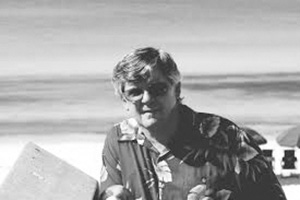By Hardy Jackson
Years ago, when agriculture dominated Alabama, the month of September was known for three things.
Politics, fights and revivals.
Often the three were related.
Now I won’t get into the fights, other than to say that in the heat of late summer, tempers got a little raw and with the crops laid by, there was ample opportunity for folks with a grudge to go out and settle it.
Sometimes politics played into the fighting, as it did in 1893, down in Clarke County, when what is known locally as the Mitcham War broke out. It was not an isolated incident. Other counties had their share of late summer/early fall violence.
Once, in a fit of democratic zeal, the state legislature set aside this time for campaigns and elections because between the opening of the first cotton boll and picking the crop, farmers had time to get to the polls.
As for revivals, the same open dates on the calendar made this a dandy time to get folks to church, entertain them with music and preaching, shake them out of their summer spiritual lethargy and maybe even save a few souls.
A visiting evangelist would come to town to bring The Word in a series of nightly messages. There would be “special music” and professions of faith that would soften the hardest heart. A week of this would culminate with a wing-ding of a sermon on Sunday, followed by dinner on the grounds. Bring a friend and a covered dish.
When I was a boy, rural churches loaded up members and drove to town for the festivities. It was a trek country folk normally made only once a week, on Saturday, to “trade.” But it was OK to take the time to make the journey five times or more because, well, it was done in the name of the Lord.
Not to downplay the spiritual side of revivals, but there was also a reunion aspect to the gatherings – especially for the children. Friends they had not seen since school let out came with their parents. Often segregated from the adults who went to “Big Church,” children were among their own, and as I recall there was more playing than praying where we gathered.
Most folks I knew were either Methodists or Baptists. They mingled freely and when a month had a fifth Sunday, whole congregations would move from their church to the other, and for a day, we were one.
Children were even more ecumenical. We attended each other’s Vacation Bible Schools, where we learned which denomination had the best cookies and Kool-Aid.
Theological differences eluded us – Baptists dunked, Methodist sprinkled – that was pretty much it.
And my buddies and I attended each other’s revivals, because it was a great place to meet girls.
Rural families who came to town to be “revived” often brought a daughter you had not seen since school shut down three months earlier. Time had worked a miracle and the skinny, knob-kneed girl no one would give a second glance had blossomed into a sun-kissed beauty. She went to “Big Church” with the adults and the boys followed. Surely such girls were as responsible for young men putting away childish things as was the preacher in the pulpit.
By the last night some lucky lad was holding her hand under the hymnal as they sang “Have Thine Own Way.”
There were also moments of high drama, which usually came at the end of the evening when the Evangelist issued the “Altar Call.”
All that music, singing and exhorting inspired a soul-searching that led some to get out of the pew, walk down the aisle, and approach the altar where the Evangelist waited.
And while the congregation sang “Softly and Tenderly,” some sinners openly confessed sins that confirmed what the congregation already suspected the sinner was doing. Others, however, prayed silently, which allowed the saved and sanctified to imagine just what the sinner was asking forgiveness for.
Only sometimes no one came forward.
I remember well such a time.
Over and over the congregation sang “calling o’ sinner come home” but the sinners just sat there. The Evangelist look worried. If no one got saved his reputation would suffer.
My fear was that we would be stuck there all night.
I was on the verge of going down myself and confessing that I was the one that put the dead snake in Mrs. Poole’s flower box – almost gave her a heart attack she told her neighbors –when the spirit moved someone else and I was safe.
Finally the Evangelist felt he had netted all the sinners he was going to net, so he announced the closing hymn. Then, with everyone duly witnessed to, we went our separate ways and waited for football season.
Harvey H. (“Hardy”) Jackson is Professor Emeritus of History at Jacksonville State University and a columnist for The Star. He can be reached at hjackson43@gmail.com..

